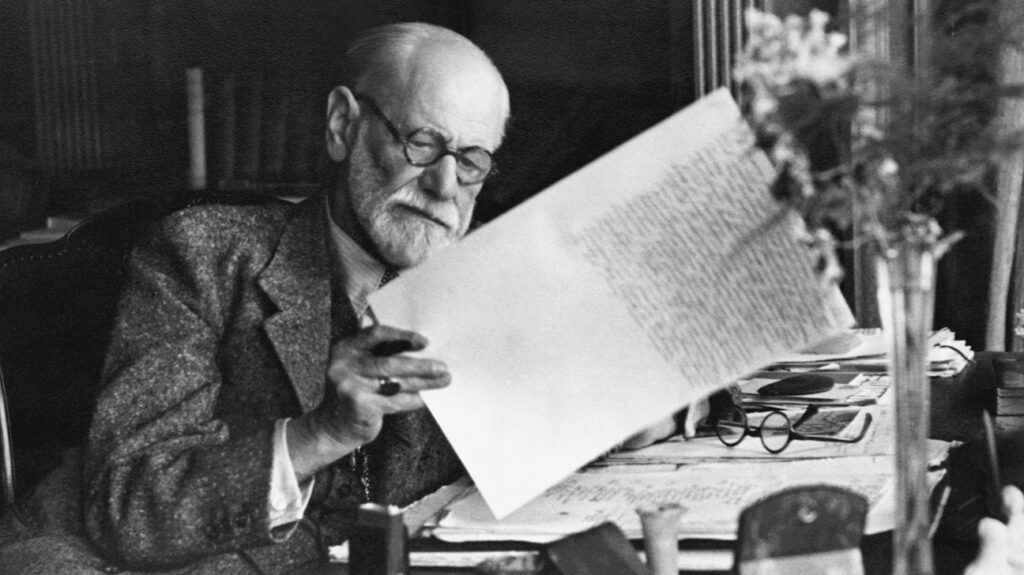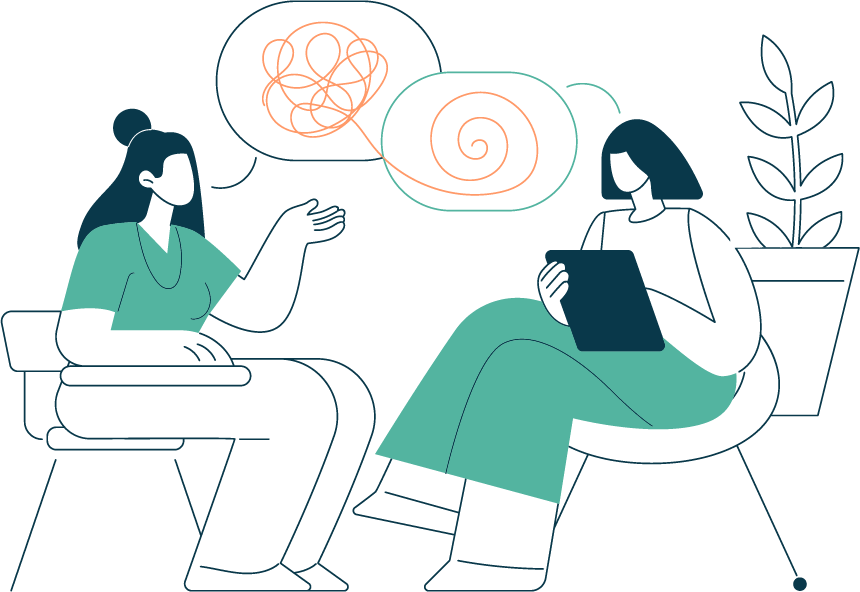Learn how therapy st paul can reduce stress effectively
Unlocking the Possible of Psychotherapy Services for Tension Management and Coping Strategies
Psychotherapy offers useful devices for managing anxiety and improving coping techniques. By utilizing numerous restorative techniques, people can get insights into their emotional actions and develop healthier methods to browse life's pressures. This procedure not only aids in identifying stress factors yet also promotes durability - therapist st paul. Understanding just how these solutions can be customized to meet specific requirements is vital. The exploration of efficient techniques exposes deeper insights into personal development and well-being
Recognizing Stress And Anxiety and Its Effect On Wellness
Stress and anxiety, an universal facet of modern life, significantly affects individual health. It materializes in numerous kinds, from acute pressures, such as target dates, to persistent stressors like economic concerns or relationship problems. This physiological and mental response can cause substantial wellness complications, consisting of anxiety, depression, and heart diseases. Individuals experiencing high tension levels commonly discover it challenging to maintain healthy relationships, focus on daily tasks, or take part in self-care. Furthermore, the body's stress action can interrupt sleep patterns and compromise the body immune system, further aggravating health problems. Recognizing the complex nature of stress and anxiety is important for individuals seeking to improve their well-being, as recognizing its influence can encourage them to embrace much healthier coping systems and way of life adjustments.
The Role of Psychotherapy in Stress Administration
Psychotherapy works as an important tool for individuals looking for to take care of stress and anxiety efficiently. It supplies a structured setting where customers can discover their thoughts and emotions, enabling them to determine stress factors and develop healthier coping devices. Via therapeutic dialogue, people gain insight into their behavior patterns and discover to reframe negative attitude. This process fosters psychological guideline and resilience, encouraging customers to confront obstacles with a well balanced point of view. Additionally, Psychotherapy advertises self-awareness, aiding individuals identify their reactions and triggers to stress. By cultivating an encouraging healing relationship, practitioners can direct clients towards personal growth and enhanced well-being. therapist st paul mn. Inevitably, Psychotherapy equips individuals with the skills essential to navigate stressors, boosting their total quality of life
Usual Restorative Methods for Handling Stress
Common restorative approaches for handling anxiety include Cognitive Behavior modification, mindfulness-based techniques, and Solution-Focused Brief Treatment. Each technique offers distinct methods for assisting individuals understand and deal with stressors. Discovering these approaches can supply valuable understandings right into effective stress management methods.
Cognitive Behavior Modification
Various individuals facing anxiety have turned to Cognitive Behavioral Treatment (CBT) as an efficient approach for handling their thoughts and feelings. CBT concentrates on recognizing and challenging unfavorable thought patterns, making it possible for individuals to reframe their understandings of stressors. By understanding the connection in between habits, sensations, and ideas, customers can establish healthier coping strategies. This therapeutic approach usually entails structured sessions where clients function collaboratively with therapists to establish details goals and keep track of development. Methods such as cognitive restructuring and behavioral activation are employed to foster durability. Study indicates that CBT can result in substantial decreases in stress-related symptoms, making it a useful tool for those seeking to improve their emotional wellness and browse life's challenges better.

Mindfulness-Based Techniques
While various restorative techniques exist for tension administration, mindfulness-based strategies have actually gained significant attention for their efficiency in fostering present-moment recognition and psychological law. These strategies, rooted in old meditation methods, motivate individuals to concentrate on their ideas, feelings, and bodily experiences without judgment. By cultivating a non-reactive awareness, individuals can minimize anxiety and anxiety levels, bring about boosted coping mechanisms. Mindfulness practices, such as reflection, deep breathing, and conscious activity, aid customers create a better feeling of self-awareness and resilience. Study has actually revealed that regular interaction in mindfulness can improve psychological well-being and promote adaptive anxiety feedbacks. Subsequently, these strategies have actually ended up being important components of contemporary Psychotherapy, providing clients useful tools for guiding through life's challenges.
Solution-Focused Quick Treatment
Building on the mindfulness strategies that promote self-awareness and psychological law, Solution-Focused Brief Treatment (SFBT) presents a distinct strategy to taking care of stress. SFBT emphasizes a strengths-based point of view, motivating people to identify and utilize their present resources and dealing techniques. Instead of home on troubles, this therapeutic version concentrates on remedies and future objectives, promoting a positive expectation. With quick, goal-oriented sessions, clients are directed to envision their wanted outcomes and check out useful steps to accomplish them. This method is specifically reliable for individuals dealing with severe stress, as it promotes quick gains in resilience and dealing capabilities. By emphasizing activity and services, SFBT empowers customers to navigate stress with self-confidence and quality.
Establishing Coping Strategies Through Therapy
In Psychotherapy, creating efficient coping approaches is important for stress management. This procedure commonly entails determining anxiety sets off, employing cognitive behavioral methods, and incorporating mindfulness and leisure methods. By dealing with these locations, people can enhance their strength and better browse demanding scenarios.
Identifying Stress And Anxiety Causes
How can individuals effectively identify their anxiety causes? Identifying anxiety activates is a vital action in taking care of tension. People can start by keeping an anxiety journal, documenting circumstances that prompt stress and anxiety, along with connected feelings and physical responses. This reflective practice enables patterns to arise, revealing certain triggers. Additionally, therapy can promote this recognition procedure via guided discussions where individuals discover their life experiences and psychological feedbacks. Therapists often urge mindfulness strategies, helping clients to end up being extra conscious of their prompt sensations and reactions. By identifying these triggers, people can obtain insight into their anxiety feedbacks, laying the foundation for developing efficient coping strategies tailored to their unique experiences.
Cognitive Behavioral Methods
Determining anxiety sets off offers as a structure for establishing effective coping methods, and cognitive behavior methods (CBT) play a remarkable role in this process. CBT includes recognizing negative thought patterns and changing them with more useful ones, which can considerably minimize stress levels. By understanding exactly how thoughts affect emotions and habits, individuals can find out to challenge irrational my link beliefs and establish healthier actions to stress and anxiety. Methods such as cognitive restructuring, analytical, and exposure therapy enable customers to challenge stressors in a controlled atmosphere. Additionally, exercising self-monitoring assists clients acknowledge their progress and obstacles. Ultimately, CBT equips people to cultivate resilience and enhance their coping skills, cultivating a positive method to taking care of tension efficiently.
Mindfulness and Relaxation Approaches
While cognitive behavioral methods concentrate on restructuring thought patterns, mindfulness and relaxation methods use complementary strategies for stress and anxiety management. These techniques urge individuals to cultivate present-moment recognition, lowering anxiousness and advertising emotional regulation. Mindfulness techniques, such as meditation and deep-breathing workouts, allow clients to observe their ideas and sensations without judgment, cultivating a feeling of calmness. In addition, relaxation techniques, consisting of progressive muscular tissue relaxation and led imagery, additional aid in relieving physical tension connected with stress and anxiety. Integrating these methods right into Psychotherapy can equip people to develop durability and flexibility in difficult circumstances. By integrating mindfulness and relaxation into their coping toolkit, clients boost their total wellness and boost their ability to navigate stress and anxiety efficiently.
Building Resilience With Psychotherapy Techniques
Structure durability with Psychotherapy techniques outfits individuals with the devices essential to browse life's obstacles successfully. Numerous methods, such as cognitive-behavioral therapy (CBT), promote a much deeper understanding of ideas and behaviors, equipping people to reframe negative thinking patterns. In addition, techniques like emotion law and stress and anxiety monitoring assistance clients develop coping techniques that enhance psychological flexibility. Psychotherapy also urges the growing of a supportive social media, which acts as a buffer against stress. By cultivating self-awareness and promoting flexible abilities, individuals find out to approach difficulty with self-confidence. Inevitably, these Psychotherapy methods not just help in getting over instant stressors but also lay a foundation for long-lasting resilience, allowing people to adapt to future challenges with better simplicity and strength.
Finding the Right Therapist for Your Requirements
Steering the journey of durability usually includes looking for professional assistance, making the choice of the right therapist a considerable Learn More Here step. People should consider their certain requirements, consisting of the sort of tension they deal with and liked restorative strategies. Researching various specialists, analyzing their credentials, and recognizing their specialties can assist this decision. Individual compatibility is vital; a empathetic and helpful relationship usually boosts restorative results. Furthermore, logistics such as price, accessibility, and place play a necessary duty in selecting a specialist. Taking part in first consultations can aid gauge comfort levels and restorative designs. Eventually, finding the appropriate specialist is an essential part of reliable tension administration and the advancement of coping techniques, paving the way for improved psychological wellness.
Regularly Asked Concerns
For How Long Does Psychotherapy Typically Take to Show Outcomes for Stress And Anxiety Monitoring?
Psychotherapy usually takes a number of weeks to a few months to reveal recognizable outcomes for stress management. Individual actions vary based upon factors such as the seriousness of stress and anxiety, healing approach, and the client's involvement in the process.
Can Psychotherapy Work for Anxiety Associated With Particular Life Events?

Are There Any Type Of Adverse Effects of Psychotherapy for Stress Management?
Psychotherapy for stress monitoring may bring about short-lived discomfort, such as emotional distress or enhanced stress and anxiety throughout sessions. These side impacts are often short-term and can be component of the healing process.
Just How Much Does Psychotherapy for Stress Monitoring Normally Price?
Psychotherapy for tension administration generally costs in between $100 to $250 per session, relying on the specialist's experience and location. Insurance may cover some expenses, potentially decreasing out-of-pocket expenses for clients looking for these solutions.
Is Online Therapy as Efficient as In-Person Psychotherapy for Anxiety?
Research study suggests that online therapy can be as efficient as in-person Psychotherapy for tension administration. Elements such as therapist connection, customer involvement, and private preferences considerably affect the general performance of both methods.
Psychotherapy offers as a necessary device for individuals seeking to manage stress efficiently. therapist st paul. In addition, Psychotherapy advertises self-awareness, assisting individuals recognize their reactions and triggers to tension. Acknowledging anxiety activates is a crucial step in managing stress and anxiety. Individuals can begin by keeping an anxiety diary, recording circumstances that provoke stress and anxiety, along with associated pop over here feelings and physical reactions. Psychotherapy can be reliable for anxiety associated to particular life events, as it provides people with dealing techniques and psychological assistance